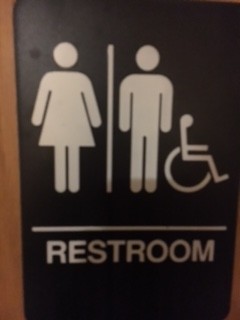Trends in the Law: Restroom Choice.
Posted By Cliff Tuttle | May 5, 2016
No. 1,259
Summary: The Courts will soon be required to determine whether the state can require an individual to use public bathrooms that correspond to his/her biological sex when he/she states that this violates a right to choose the restroom that corresponds to the individual’s perceived sexual preference.
 When the State of North Carolina adopted House Bill 2 (HB2) recently, it set the stage for a confrontation in the courts. It is only a matter of time before challenges are filed, probably in the Federal Courts.
When the State of North Carolina adopted House Bill 2 (HB2) recently, it set the stage for a confrontation in the courts. It is only a matter of time before challenges are filed, probably in the Federal Courts.
Administrators at the University of North Carolina are weighing how to cope with problems it faces as an academic institution. These problems include protests by students and faculty and threats of boycott by academic institutions and organizations around the country and the world.
Chancellor Carolyn Holt points out that the statute has no provision for enforcement and she bluntly predicts that there won’t be any. Perhaps not by the University, but it won’t be long before someone will test the law. There are plenty of criminal statutes that could be applied, such as disorderly conduct, public lewdness, defiant trespass, to suggest a few.
However, there is a larger practical problem. Schools, employers and other providers of public bathrooms must decide what to do when requests are made by members of the public they serve. One solution announced by UNC is the construction of many more single unit bathrooms. At other institutions, formerly sex-segregated bathrooms have been converted to multiple unit unisex bathrooms, albeit with locks on the door. This solution, which is intended to cater to needs of both sides, creates another problem — shortage.
There is an intermediate solution, too. At one institution I visited recently, there were both sex-segregated and unisex bathrooms at different locations in the building.
CLT



